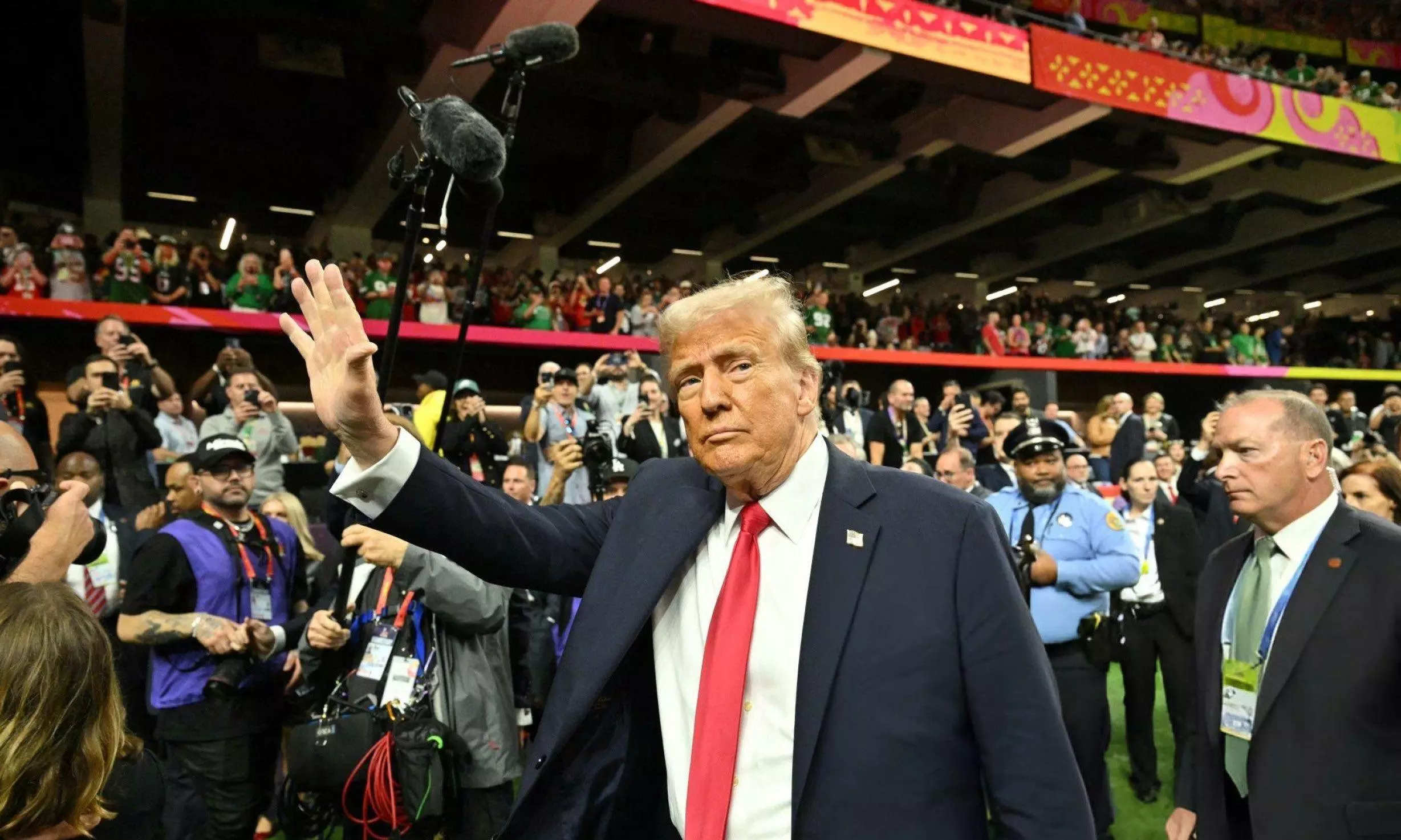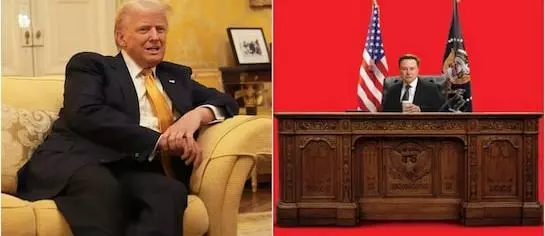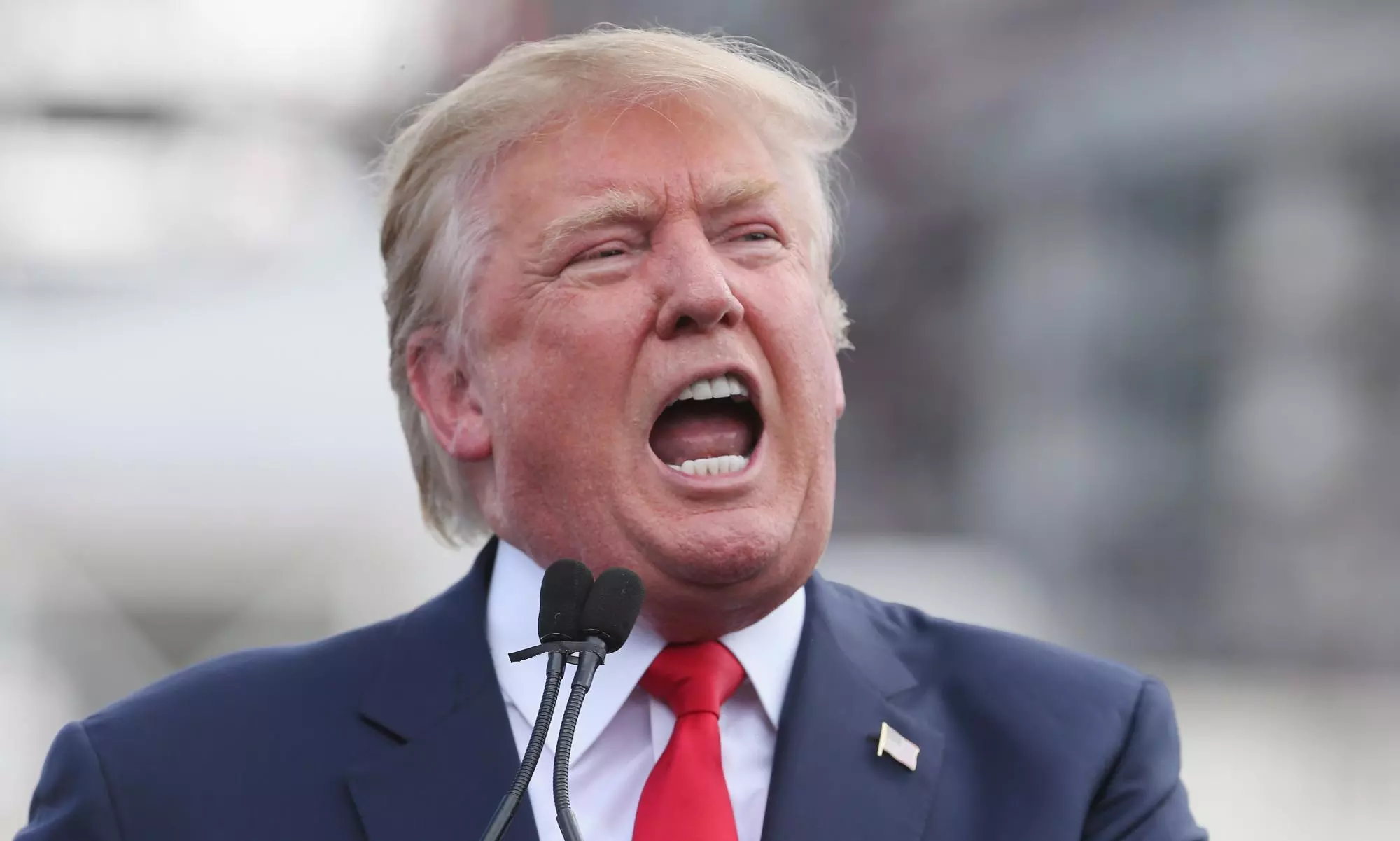
Trump attends Super Bowl amid complex relationship with football
text_fieldsPresident Donald Trump at the Super Bowl, New Orleans, Sunday, February 9, 2025.
New Orleans: Donald Trump’s long and complicated history with football took another turn on Sunday as he became the first sitting U.S. president to attend a Super Bowl. From his days as a high school player to owning a team in a rival league, and later clashing with the NFL over players' protests, Trump's connection to the sport has been marked by controversy and ambition.
Arriving from Florida, Trump landed in New Orleans and met with participants in the honorary coin toss, including relatives of victims from a deadly New Year’s Day attack in the French Quarter, as well as members of law enforcement and emergency responders. The game, held at Caesars Superdome, featured the two-time defending champion Kansas City Chiefs facing the Philadelphia Eagles. His presence coincided with the NFL’s decision to remove the "End Racism" slogans from end zones, a move that some critics linked to his administration's recent rollback of federal diversity, equity, and inclusion (DEI) initiatives. However, NFL Commissioner Roger Goodell maintained that the league's diversity policies were not in conflict with the administration’s actions.
In a pregame interview with Fox News Channel's Brett Baier, Trump predicted a Kansas City victory, praising quarterback Patrick Mahomes for his winning mentality. His interest in football dates back to his school days at the New York Military Academy. In the early 1980s, as a New York businessman, he owned the New Jersey Generals of the now-defunct United States Football League, even suing the NFL in an attempt to force a merger.
During his first presidential term, Trump frequently criticized NFL players who knelt during the national anthem to protest racial injustice, a movement started by Colin Kaepernick in 2016. His outspoken stance led to a high-profile feud with the league, as he repeatedly called for players who took a knee to be fired. At a 2017 rally in Alabama, he made headlines by urging team owners to remove protesting athletes from the field.
Watching the game from a suite, Trump was accompanied by several Republican allies, including Senators Lindsey Graham and Tim Scott of South Carolina. House Speaker Mike Johnson of Louisiana had also planned to join him. During the national anthem, he stood and saluted.
Beyond football, Trump has long maintained a strong connection to sports. An avid golfer, he owns multiple golf courses and has hosted tournaments. He has also sponsored boxing matches and attended UFC events. Earlier in the day, he played golf in Florida with Tiger Woods.
His ties to the NFL extend beyond the sport itself. Several team owners have contributed to his campaigns, and he remains close with former football stars Herschel Walker and Doug Flutie, both of whom played for the Generals. Trump previously endorsed Walker’s unsuccessful Senate run in Georgia and has since nominated him for an ambassador role in the Bahamas.
Recently, Trump signed an executive order aiming to prevent transgender women and girls from competing in women's sports by leveraging federal funding restrictions on schools that do not comply. In a statement ahead of the game, he emphasized that the Chiefs and Eagles symbolize the aspirations of young athletes as the nation works to restore fairness in sports.
The NFL’s decision to replace "End Racism" messaging with “Choose Love” for the Super Bowl has sparked debate. While the league said the new slogan was meant to unify the country following recent tragedies, including the deadly truck attack in New Orleans, some, like Northwestern University professor Alvin Tillery, criticized the move as a capitulation. He questioned whether the change was influenced by Trump's presence, arguing that the league profits significantly from Black athletes and should take a stronger stand on social justice issues.
The game unfolded under the shadow of these broader political and social discussions, as Trump’s involvement once again underscored the intersection of sports and politics in America.
With PTI inputs

























